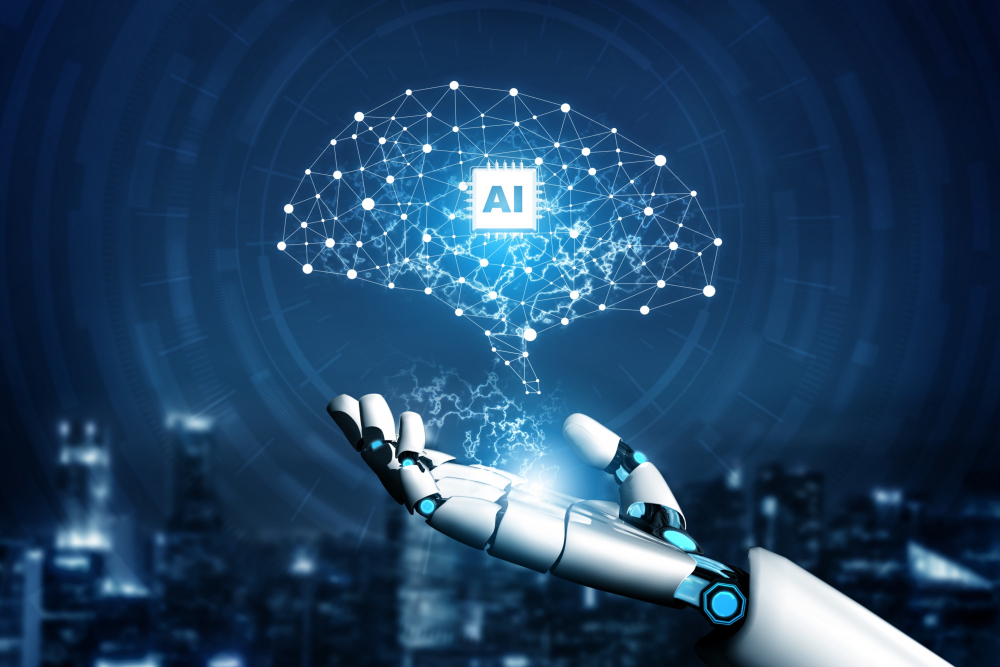In the not-so-distant past, the finance industry operated on the backbone of human expertise, manual processes, and a large amount of intuition. Fast forward to today, the landscape has undergone a shift, largely thanks to the integration of Artificial Intelligence (AI). Consider this: a decade ago, the idea of a computer predicting stock market trends with accuracy, or an algorithm providing personalized financial advice, seemed like scenes from a sci-fi movie. However, the reality is that AI is not only reshaping the future of banking and investments but has become an integral force driving unprecedented change in the financial sector.
Take the example of algorithmic trading, where complex mathematical models and AI algorithms execute trades at speeds and frequencies unimaginable to human traders. These algorithms, fueled by vast datasets and real-time analysis, make split-second decisions, optimizing portfolios and maximizing returns. This is not merely a technological trend; it’s a revolution that’s transforming the core of finance. In this exploration, we will journey through the realms of AI in finance, unraveling the current trends, exploring what’s working, understanding how it’s working, and envisioning the extraordinary future that lies ahead.
How AI Has Become a Transformative Force in the Finance Sector:
1. Algorithmic Trading and Predictive Analytics
The integration of AI in finance is perhaps most visible in the realm of algorithmic trading and predictive analytics. Traditional trading methods are rapidly being replaced by algorithms that analyze vast datasets at lightning speed, identifying patterns and trends that human traders might overlook. This has resulted in more efficient and accurate decision-making in the stock market, giving rise to a new era of quantitative finance.
Machine learning algorithms can adapt to changing market conditions, continuously learning from historical data and adjusting trading strategies accordingly. As a result, financial institutions are witnessing improved portfolio management, reduced trading risks, and increased profitability.
2. Chatbots and Customer Service
Another significant trend in AI within the finance sector is the widespread adoption of chatbots for customer service. AI-powered chatbots are becoming the face of customer interactions, offering real-time assistance and support. These bots can handle routine queries, provide account information, and even guide users through various financial processes.
The implementation of chatbots in customer service not only enhances the customer experience but also contributes to operational efficiency. Banks and financial institutions can handle a larger volume of customer interactions simultaneously, reducing wait times and improving overall satisfaction.
3. Fraud Detection and Security
Security has always been a concern in the finance field, and AI is playing a pivotal role in fortifying the sector against fraudulent activities. Machine learning models are employed to analyze vast amounts of data in real-time, identifying patterns and anomalies associated with fraudulent transactions. This proactive approach to security significantly reduces the risk of unauthorized access and financial fraud.
AI-driven fraud detection systems continuously evolve as they encounter new threats. These systems can learn from historical data, adapt to emerging patterns, and enhance their accuracy over time. The result is a financial ecosystem that is not only more secure but also capable of staying one step ahead of increasingly sophisticated cyber threats.
4. Credit Scoring and Risk Assessment
AI is making significant strides in transforming traditional credit scoring models. Historically, credit scores were primarily based on limited financial data, such as payment history and outstanding debts. AI has disrupted this paradigm by incorporating a vast number of data points to assess an individual’s creditworthiness more accurately.
Machine learning algorithms can analyze non-traditional data sources, including social media behavior, online transactions, and even smartphone usage patterns. This results in fairer assessments and opens up avenues for credit access to a wider demographic.
5. Personalized Financial Advice
These AI-driven platforms leverage sophisticated algorithms to analyze an individual’s financial goals, risk tolerance, and market conditions. The result is a tailored investment portfolio that optimizes returns based on the user’s unique circumstances.
Robo-advisors are democratizing access to financial planning and investment advice. By automating the decision-making process, they make financial services more affordable and accessible to a broader audience. The success of Robo-advisors also underscores the trust that users place in AI to manage their finances effectively.
6. Automated Back-Office Operations
AI is streamlining back-office operations within financial institutions, automating repetitive and time-consuming tasks. Tasks such as data entry, reconciliation, and compliance are being handled by intelligent automation, freeing up human resources to focus on more complex and strategic aspects of finance.
The automation of back-office operations not only increases efficiency but also reduces the margin of error. AI-driven systems can process large volumes of data with unparalleled accuracy, ensuring that financial records are up-to-date and compliance requirements are met.
Final Thoughts
In conclusion, the connection between AI and finance is reshaping the industry in numerous ways. The current trends, successful applications, and ongoing developments in AI are indicative of a future where financial services are not only more efficient but also more accessible and personalized. As AI continues to evolve, financial institutions will need to embrace change, adapt to new technologies, and navigate the ethical considerations associated with widespread AI adoption.
Looking ahead, the future of AI in finance holds exciting possibilities, from the integration of advanced analytics and quantum computing to the convergence of AI and blockchain. Ethical considerations will play a pivotal role in shaping the responsible use of AI, ensuring that its benefits are realized without compromising fairness and transparency.
Financial institutions that proactively embrace AI, foster innovation, and prioritize ethical considerations are poised to lead the way into a new era of finance. The journey toward this future requires a strategic approach, continuous learning, and a commitment to balancing technological advancements with ethical responsibility. As the revolution of AI in finance unfolds, it is clear that the industry is on the verge of transformative change that will redefine banking and investments for years to come.



